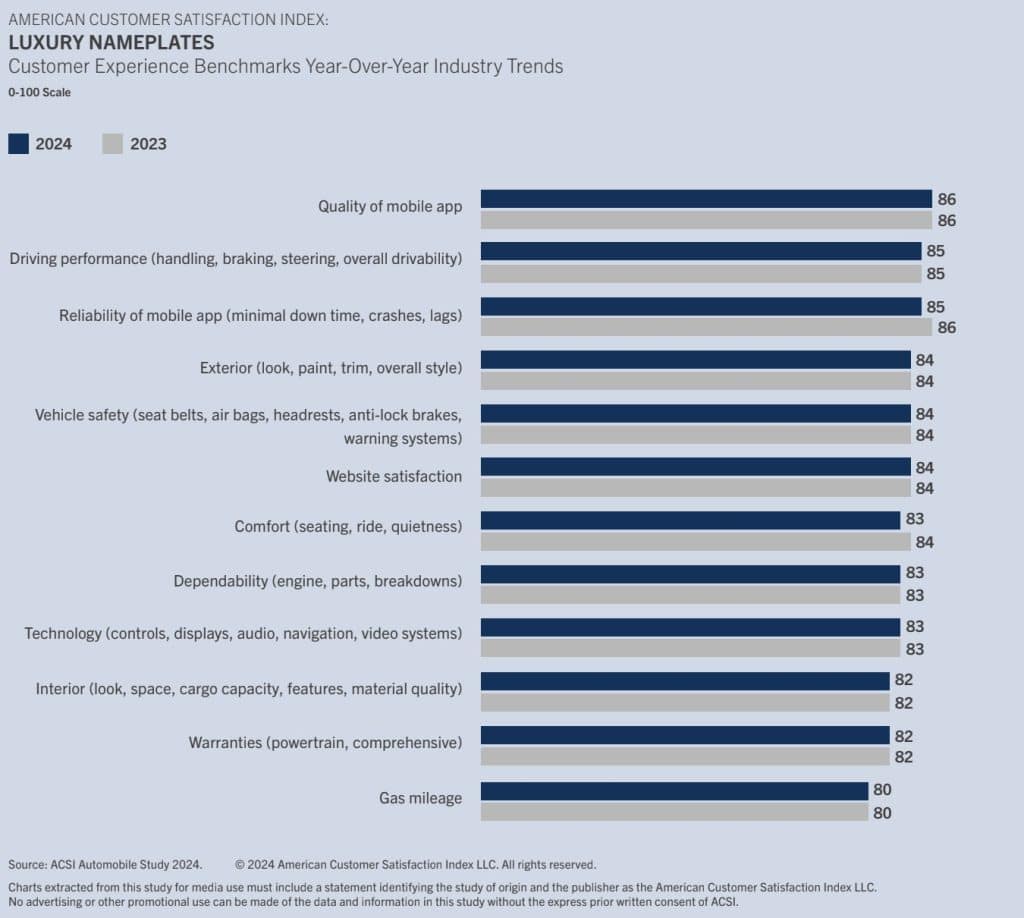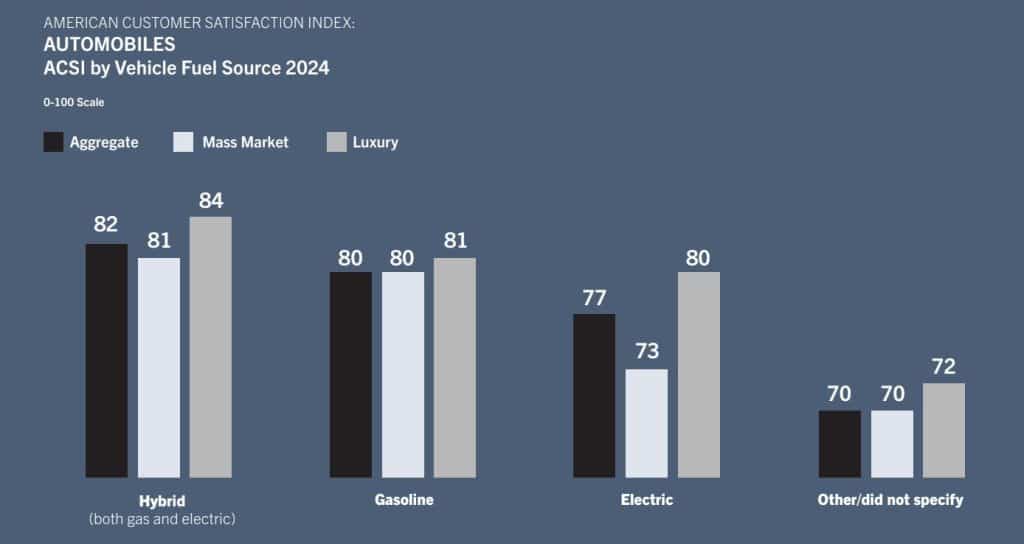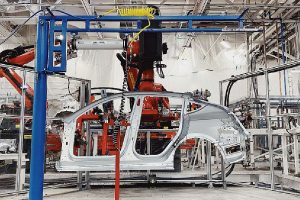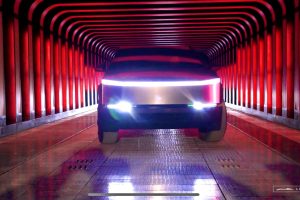- 🚗 Tesla leads the American Consumer Satisfaction Index in the luxury segment, tying with Mercedes-Benz.
- 🤝 Both Tesla and Mercedes-Benz scored 83 points; Tesla remains unchanged, while Mercedes-Benz improved by 4%.
- 💼 Tesla’s pricing strategy and improved complaint handling enhance value perceptions.
- ⚡ Hybrid-electric vehicles boost customer satisfaction across luxury, mass market, and aggregate categories.
- 🌟 Tesla’s role minimizes the satisfaction gap between hybrid and electric vehicles in the luxury market.
In an era where customer perception is pivotal for brand success, Tesla and Mercedes-Benz have jointly secured the leading position in the American Consumer Satisfaction Index (ACSI) for luxury vehicles in 2024. This achievement highlights the evolving landscape of the automotive industry, driven by innovative strategies and consumer-driven values.
ACSI: Benchmark for Consumer Satisfaction
The American Consumer Satisfaction Index is a crucial indicator for automakers, providing insights into how well companies are meeting consumer expectations. This year’s results show Tesla and Mercedes-Benz both scoring an impressive 83 points, though they arrived at this position through varied pathways. For Tesla, maintaining its score from the previous year was a testament to stable, consistent customer relations and operational practices. In contrast, Mercedes-Benz improved its score by 4%, largely due to enhancements in customer satisfaction with its hybrid-electric vehicle offerings.

The Role of Pricing Strategy and Complaint Handling
Tesla’s consistent performance in the ACSI can be attributed to its strategic pricing and improved handling of customer complaints. By adopting a pricing strategy that balances value and perception, Tesla leverages customer satisfaction as a competitive tool. This approach not only meets consumer expectations in terms of cost but also enhances the overall value proposition of Tesla vehicles.
Complaint handling, often a sensitive area for any company, has been a focal point for Tesla. By streamlining this process, Tesla has mitigated potential dissatisfaction, further elevating its standing among consumers. This proactive strategy suggests a mature approach to customer service, recognizing that addressing and resolving issues promptly is essential in retaining brand loyalty.

The Rise of Hybrid-Electric Vehicles
A key finding in this year’s ACSI survey is the increased satisfaction among drivers of hybrid-electric vehicles. These vehicles are gaining traction across all categories: luxury, mass market, and aggregate. The preference for hybrids highlights a shift in consumer preferences, driven by environmental consciousness and the demand for innovative technology.
Tesla’s influence is significant in this trend. Despite the increasing gap between hybrid and electric vehicle satisfaction, Tesla’s exceptional performance narrows this disparity. Without Tesla’s contributions, the gap between hybrid and electric vehicles in the luxury segment would be more pronounced, indicating the automaker’s substantial impact.
Analyzing Tesla vs. Mercedes ACSI Performance
- Performance Metrics: Understanding the scores and their implications.
- Consumer Expectations: How each brand meets or exceeds these.
- Future Strategy: Predictions for maintaining or improving these scores.
Impact of Hybrid Vehicles on Luxury Satisfaction
Hybrid vehicles have become a catalyst for change in the automotive sector, addressing both environmental concerns and consumer demand for efficient technology. The key impacts include:
- Environmental Benefits: Lower emissions and better fuel efficiency.
- Technological Advancement: Integration of cutting-edge technology in vehicle design.
- Consumer Appeal: Meeting customer demand for sustainable and efficient transport options.
Closing the Satisfaction Gap
Tesla stands out in its ability to minimize the satisfaction gap between hybrid and electric vehicles. Its focus on customer satisfaction, innovative technology, and strategic pricing positions it as a leader in the luxury automotive market. This ability to address diverse consumer needs is crucial as the market evolves.
Conclusion
The joint success of Tesla and Mercedes-Benz in the ACSI exemplifies the importance of strategic innovation in automotive luxury. Both companies, through distinct approaches, have managed to capture consumer interest and satisfaction. As the industry moves forward, the emphasis on sustainable practices and customer-centric strategies will only grow, setting a precedent for others to follow.





